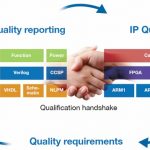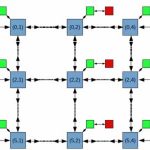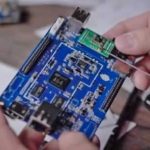According to a recent engineering survey, completing IC designs on time and within specifications gets exponentially more challenging with each node. Why? Here are the top five reasons:… Read More
Tag: soc design
ClioSoft Crushes it in 2016!
If you are designing chips in a competitive market with multiple design teams and IP reuse is a high priority then you probably already know about the ClioSoft SOS Platform. What you probably did not know however is how well they are doing with the re-architected version of their integrated design and IP management software.
We have… Read More
Power and Performance Optimization for Embedded FPGA’s
Last month, I made a “no-brainer” forecast that 2017 would be the year in which embedded FPGA (eFPGA) IP would emerge as a key differentiator for new SoC designs (link to the earlier article here).
The fusion of several technical and market factors are motivating design teams to incorporate programmable logic functionality… Read More
CEO Interview: Rene Donkers of Fractal Technologies
Fractal is another one of those very successful emerging EDA companies that you don’t read a lot about, except on SemiWiki. Rene Donkers is co-founder and CEO of Fractal Technologies, a company addressing IP quality assurance. This is a niche in the SoC tooling market that deserves some justification. Why not use an IP as-is… Read More
S2C adds support for Juno ARM dev platform
We’ve had several blogs introducing the Juno ARM Development Platform as a vehicle for ARMv8-A software development. S2C has jumped in with a module connecting their FPGA-based prototyping platform to the Juno, enabling more advanced IP… Read More
There is more than C to worry about
We periodically see that “software ate the world” line – I’m pretty sure I’ve used it a couple times myself. The fact is, software doesn’t run itself; never has, never will. Somewhere there has to be an underlying computer. First it was on beads, then in gears, then in tubes.… Read More
Case study illustrates 171x speed up using SCE-MI
As SoC design size and complexity increases, simulation alone falls farther and farther behind, even with massive cloud farms of compute resources. Hardware acceleration of simulation is becoming a must-have for many teams, but means more than just providing emulation… Read More
CCIX shows up in ARM CMN-600 interconnect
All the hubbub about FPGA-accelerated servers prompts a big question about cache coherency. Performance gains from external acceleration hardware can be wiped out if the system CPU cluster is frequently taking hits from cache misses after data is worked on by an accelerator.
ARM’s latest third-generation CoreLink CMN-600 … Read More
It’s a heterogeneous world and cache rules it now
Cache evolved when the world was all about homogeneous processing and slow and expensive shared memory. Now, compute is just part of the problem – devices need to handle display, connectivity, storage, and other tasks, all at the same time. Different, heterogeneous cores handle different workflows in the modern SoC, and the burden… Read More
3 Small-Team Design Productivity Challenges Managed
“Data management tools? We use small teams doing small designs. Each project only has two or three designers. Everyone uses the same EDA tools. Why do we need another tool for collaboration?” Good question. If you enjoy frequent meetings and redoing work because someone didn’t understand the status of IP blocks, the answers may… Read More





